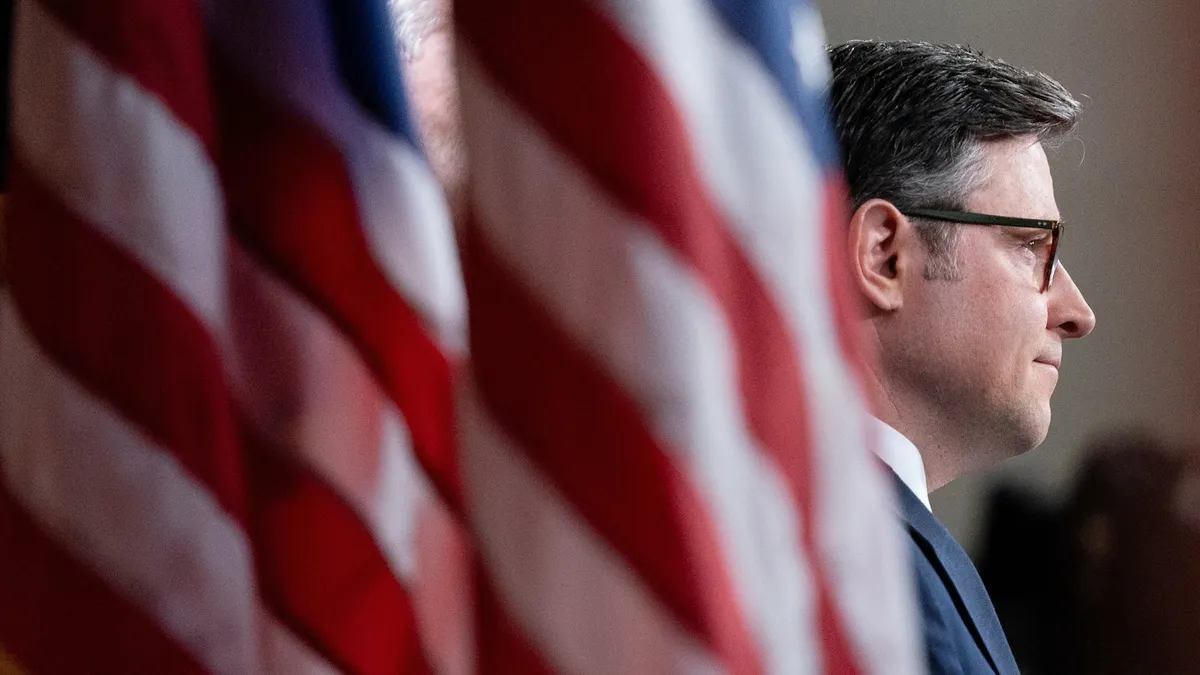
In a dramatic turn of events, House Republicans successfully passed a significant bill aimed at funding the government through the end of September 2025. This victory marks a pivotal moment for Speaker Mike Johnson, who has previously relied on bipartisan support from Democrats to avoid government shutdowns. The House voted 217-213 in favor of the spending bill, known as a continuing resolution, just days before critical funding was set to expire.
Following the House vote, which saw only a single Republican defection, Johnson expressed gratitude toward President Donald Trump, who played a crucial role in persuading GOP holdouts to back the bill. "We are united in our mission to deliver the America First agenda," Johnson stated in a post on X, emphasizing party solidarity in the face of adversity.
The spending bill now moves to the Senate, where it requires 60 votes for passage, leaving its fate highly uncertain. The House's approval has left Senate Democrats divided over how to respond. "What will Senate Democrats do?" posed Senator Angus King, I-Maine, following the House vote. "There are really only two options: vote for a pretty bad CR or risk an even worse shutdown."
Senate Democrats met for over two hours to discuss their strategy, but no consensus emerged on how to handle the vote on the bill. The fissures within the party are evident, with some Democrats leaning towards opposing the House package, risking a government shutdown. Senator Elizabeth Warren, D-Mass., harshly criticized the House-passed CR, labeling it a “shutdown bill” and asserting that Republicans would bear the brunt of the blame. "A budget is a reflection of our values," Warren stated on the Senate floor. "This proposal makes crystal clear where Republicans' values lie."
As Senate Democrats grapple with their options, the pressure is mounting. Senator King raised concerns about the implications of a government shutdown under the new administration, suggesting that it might grant the president unprecedented power to decide which federal employees are essential. "A shutdown is uncharted territory when you've got an administration that probably would welcome a shutdown," he warned.
With the House on recess for the week, Senate Democrats face a tight deadline. To stave off a shutdown by Friday night, they will need at least eight Republican votes, with Senator Rand Paul already signaling his opposition to the bill. Uncertainty looms over the Senate floor as members express their discomfort with the proposed legislation. "They made a bunch of changes; I want to see what they're changing," remarked Senator John Hickenlooper, D-Colo., expressing his unease about the bill's contents.
The House vote revealed a stark political divide, with only one Republican, Rep. Thomas Massie from Kentucky, voting against the measure despite pressures from the administration. In contrast, Rep. Jared Golden was the sole Democrat to cross party lines, stating that although the CR is not perfect, a shutdown would be far worse. "Even a brief shutdown would introduce chaos at a time when our country can ill afford it," Golden posted on X.
The 99-page spending bill funds the government at existing levels through September 30, 2025. While it reduces overall spending from last year's funding, it notably increases military spending by approximately $6 billion. Additionally, the bill allocates another $6 billion for veterans' healthcare but decreases non-defense spending by about $13 billion compared to fiscal year 2024 levels. The legislation lacks emergency funding for disasters but boosts financial support for Immigration and Customs Enforcement deportation operations and increases funding for the WIC program by roughly $500 million, aimed at assisting low-income women and children.
The passage of this spending bill represents a significant test for Speaker Mike Johnson. With limited support from Democrats, he could only afford to lose one Republican vote, making this a critical moment for his leadership. In a statement after the vote, Johnson asserted that Republicans stand for the American people and criticized Democrats for engaging in partisan politics. With crucial backing from Trump and Vice President JD Vance, who lobbied House Republicans in the lead-up to the vote, Johnson managed to secure the necessary support to pass the bill.
As the Senate prepares to deliberate on the measure, the future of government funding hangs in the balance, and the political landscape remains fraught with uncertainty.